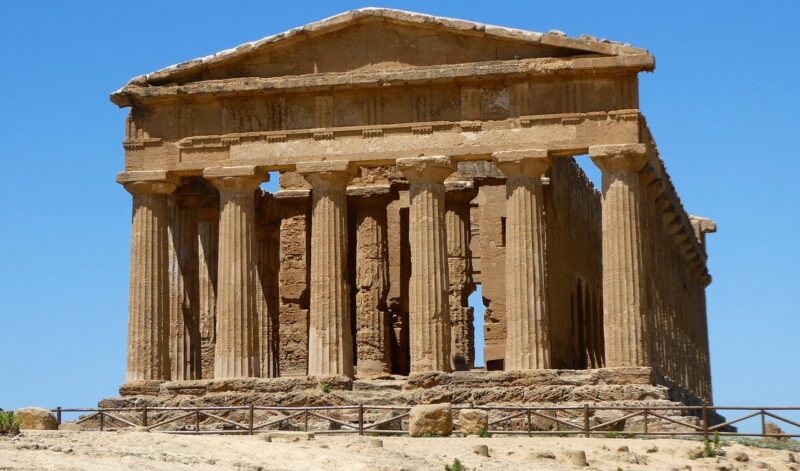How Ancient Myths and Legends Continue to Shape Modern Culture
November 16, 2024

Myths and legends are an intrinsic part of the human experience, transcending time and geography. They serve not just as entertaining tales, but as powerful narratives that shape our understanding of the world, inform our cultural identities, and influence our modern values. In this article, we will explore how these ancient stories resonate in today’s society and the myriad ways they continue to shape modern culture.
1. The Importance of Myths in Human History
From the indigenous stories of creation to the Greek myths of gods and heroes, ancient legends have served crucial purposes in early civilizations. They acted as frameworks to help societies interpret natural phenomena, promote moral values, and provide explanations for existence and the human condition. Not only are these myths and legends fascinating, but they also provide insight into how our ancestors thought and communicated their beliefs.
– **Educational Tool:** Myths often contained lessons and morals that guided the actions and decisions of individuals within a community. For instance, the tale of Icarus teaches the dangers of hubris, while the story of Prometheus illustrates the price of defiance against the gods.
– **Cultural Identity:** Many of these stories became integral to the cultural identity of societies, providing a shared history and set of values that united individuals.
Today, these ancient narratives have not lost their relevance; they continue to influence everything from literature and film to philosophy and psychology.
2. The Resurgence of Myths in Literature and Film
Modern literature and cinema frequently revisit and reinterpret ancient myths, often making them central to contemporary narratives.
– **Adaptations and References:** From the Harry Potter series, which incorporates elements of Greek mythology, to films like “Clash of the Titans,” the influence of ancient myths is prevalent. These adaptations often serve as allegorical commentaries on current issues, making them accessible to today’s audiences.
– **Fantasy Worlds:** The genre of fantasy often draws heavily from mythological sources. Think of J.R.R. Tolkien’s Middle-earth, which is rich with creatures and tropes derived from Norse and Celtic myths. Similarly, the Marvel Cinematic Universe has taken significant inspiration from Norse mythology, particularly in its portrayal of Thor and Loki.
Ultimately, myths serve as scaffolding for creative innovation, allowing modern storytellers to explore timeless themes such as heroism, morality, and the human condition.
3. Myths and their Role in Modern Psychology
Significantly, ancient myths have found a place in modern psychology, where they are used as tools for therapy and understanding the human psyche.
– **Archetypes:** Carl Jung proposed that mythological archetypes are inherent in the human subconscious. Characters from myths embody universal aspects of the human condition, including the Hero, the Mother, and the Wise Old Man. Jung believed that these archetypes help individuals make sense of their own experiences and personal journeys.
– **Narrative Therapy:** Therapists often utilize storytelling techniques to guide patients in re-evaluating their life stories and finding meaning through the lens of myth. By relating personal experiences to mythic structures, individuals can better navigate their emotional landscapes and foster personal growth.
In this way, ancient myths not only enlighten our understanding of society but reveal the inner workings of our minds.
4. Cultural Rituals and Reenactments: Keeping Myths Alive
Cultural rituals often revolve around ancient myths, serving to keep these stories alive within communities. Many cultures practice traditional storytelling, reenactments, or festivals that celebrate their mythological heritage.
– **Rites of Passage:** Certain myths form the backbone of rites within various societies, marking significant life transitions such as coming-of-age ceremonies or seasonal festivals. For example, the ancient Greek Eleusinian Mysteries celebrated the myth of Demeter and Persephone, symbolizing the cycles of life and death.
– **Cultural Festivals:** Festivals often celebrate mythological narratives, such as the Egyptian Festival of Opet that honored the connection between gods and pharaohs, or the Hindu festival of Dashain that embodies victory and prosperity.
These rituals serve not only to honor myths but foster a sense of community and continuity through generations.
5. Myths in Modern Values and Ethics
Myths continue to evolve and have seeped into societal values, influencing modern ethics and perspectives on morality.
– **Moral Lessons:** Values derived from ancient myths inform contemporary discussions around ethics. For instance, stories of trickster figures like Loki caution against deception while promoting the value of truth.
– **Social Commentary:** Modern reinterpretations of myths often provide critical lenses on current social issues. The tale of Medusa has evolved into a symbol of the consequences of victim-blaming in today’s society, empowering movements around feminism and social justice.
Thus, ancient myths serve as reflections of both historical and modern values, giving voice to the complexities of contemporary life.
Conclusion: Myths as a Living Tradition
In conclusion, ancient myths and legends are not mere relics of the past; they are living traditions that continue to influence and inspire modern culture. They shape our stories, inform our moral codes, and enrich our psychological landscapes. By embracing and understanding these narratives, we can gain deeper insights into our own cultures, identities, and shared human experiences. It is through the lens of these ancient stories that we can navigate our present and future with more wisdom and understanding.
Embracing the lessons of myths enables us to explore the realms of possibility and power inherent in our shared human journey, ensuring that the echoes of myth continue to resonate in generations to come.








